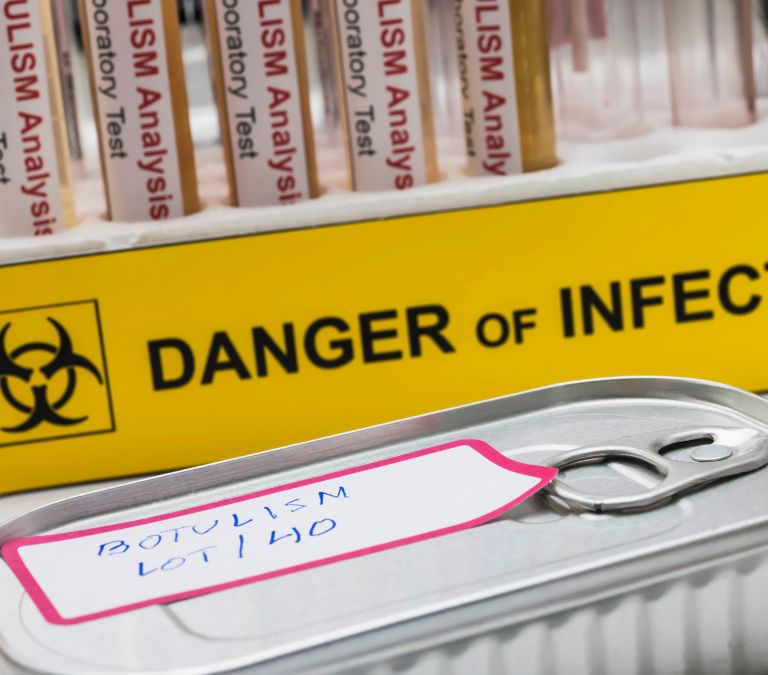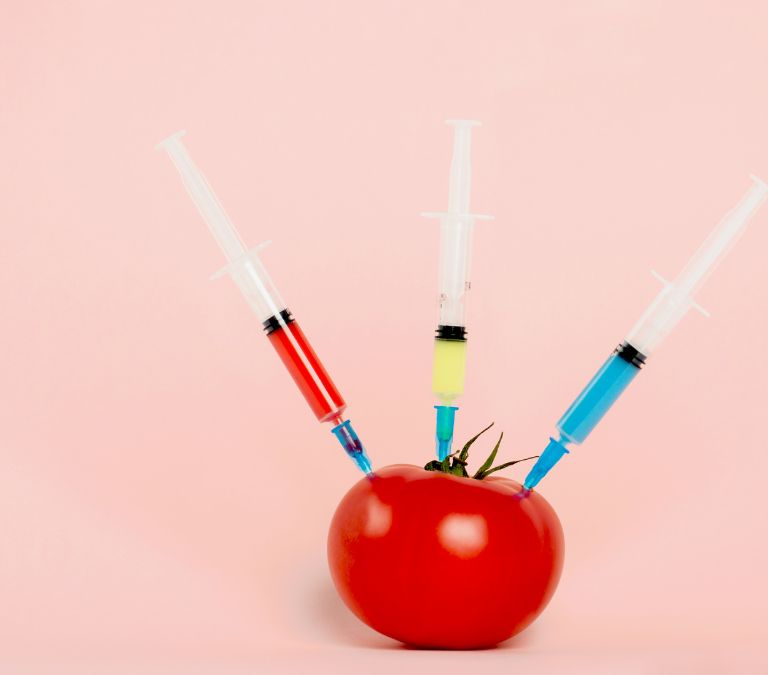Toxic overload is a general body condition that is an excess accumulation of toxins in one’s body. These toxins are harmful substances capable of causing the death of cells, causing imminent danger to human health through altering cells and genes, slowing down body functions, hastening the aging of organs, disturbing hormone balance, increasing the risk of diseases and cancers, accelerating the aging process and disrupting body balance.
Toxins usually come from Crops (sprayed with pesticides, leaving our fruits and veggies with pesticide residues), water (drinking water laced with heavy metals contains unsafe levels of toxins, like lead, copper, and arsenic), food (including additives, preservatives, and food contaminants), livestock and dairy products (Animals are fed with growth-promoting drugs to fatten them up fast and farmed fish are exposed to mercury, antibiotics, and contaminants) and some medicines in larger doses, cleaning products, and other environmental sources from industrial effluents in water and air pollutants that many people are being exposed to it regularly.

Toxins can come from chemical dyes and chemicals from the treatment of synthetic fibers used for making wear and clothing and gain entrance into the human system through the skins, the home furnishings, and paintings (off-gassing from paints – oil, liquids and emulsions, furniture and wood treatments, carpets), products for body beauty and toiletries such as shampoos, deodorant, kinds of toothpaste, skin care, mouthwash, tampons, sanitary pads; and cleaning products like bar soap, detergents, hypochlorite solutions, etc.
These toxic chemicals can even remain for years in soil and water. Toxins are also produced in one’s body due to an unhealthy gut through the process known as autointoxication.
The human body is tasked with filtering the environmental and dietary toxins accumulating in the body daily, and while the human body is dedicated to this work and always goes through a cleansing process to release these toxins, a build-up can easily occur that alters our internal environment and impacts our health.
These toxins are processed (detoxified) through the human liver and kidneys and eliminated through the skin, feces, and urine; yet they can become overloaded and accumulate to the amount that the liver and kidneys would become overwhelmed and collapse.
Many systems of the human body can be impacted by toxicity, including the metabolic, neurological, endocrine, immune, and digestive systems. Their association symptoms range from fatigue, brain fog, cognitive dysfunction, microbial infections, malabsorption, food intolerance, leaky gut, dysbiosis, etc.
Menopause, characterized by a progressive decline in estrogen level, is accompanied by different symptoms indicating general cell struggles to keep up with the cellular activities that maintain life – explaining the general decline in the general metabolic processes and body functions at the onset of menopause in most women.
Toxins are also contributing factors to the level of severity of the arrays of menopausal symptoms women experience during menopausal transition as the accumulation of these toxins in the body from different sources such as food, water, air, and even drugs and even one from the cell deaths due to the hormonal imbalance posed by the decline of estrogen.
According to research, estrogen functions not only in the reproductive processes in women’s bodies but also as a detoxifier as it helps to mop up antioxidants that are usually associated with oxidative stress from where several toxins build up even with the aid of external factors but solely from within confirming a condition already defined earlier in this article – autointoxication.
These toxins build up and worsen menopausal symptoms and continue to accumulate due to dietary choices like consuming inappropriate foods like processed carbohydrates, spices, etc., and unhealthy lifestyles like lack of exercise and excessively engaging in stress-induced activities – eventually overloading the entire system and progressing into more serious life-threatening conditions like cardiovascular dysfunctions, cancers, bone diseases, metabolic syndromes among many others which ultimately lead to death.
These toxins accumulation can be managed during menopause by menopausal women through a process called detoxification – which involves the physical and medical processes that help to reduce toxins.
Detoxification will help rebuild and strengthen the immune system, naturally lose weight, boost healthy energy, improve general mood, increase mental focus, maintain healthy skin and skin elasticity, and other benefits.
The general detoxification processes are sure ways to reduce toxic overload (toxin accumulation), especially during menopause.
Although it may not be possible to avoid toxins altogether, especially during the menopausal transition, there are many ways one can reduce the level of exposure to and accumulation of toxins and, subsequently, reduce the toxic load.
Below are many ways women undergoing menopausal transition can cut toxic overload (reduce or minimize toxin accumulation):-
How To Cut Toxic Overload During Menopause
- Consume toxin-free food

Food toxins are the biggest contributors to toxic overload. Fruits and vegetables from supermarkets may contain herbicides and pesticides accumulated from planting operations or preservatives, which can cause toxicity.
Livestock and poultry products are not exemptions, just like hogs and chickens, and livestock is fed with growth-enhancing feeds, causing them to mature quickly.
Talk about genetically modified organisms (GMOs), both plants and animals – as they are one of the biggest threats to our health!
Genetically modified organisms are plants, and animals whose genes have been altered to produce specific properties, say increased flesh, size of fruit, taste, etc. According to research, about 70% of processed foods sold in retail stores and restaurants come from genetically modified canola, cotton, corn, and soybeans. For an instance, about half the sugar content in food products comes from genetically modified sugar beets.
Toxins scatter hormone balance and ultimately disrupt the body’s functions. As a result, women undergoing menopause may experience symptoms such as brain fog, weight gain, headaches, bloating, body odor, and many others.
Detoxifying can best manage these symptoms – start by cleaning the gut! And this detoxification can be achieved by menopausal women through the steps below.
Shop organic foods and avoid genetically modified organisms (GMOs) by checking for and going for food labels with inscriptions such as “Organic” labels or “Non-GMO Project Verified.”
Consume organically grown fruits and vegetables, especially leafy green and cruciferous greens, berries, and citrus fruits, because they contain vitamins and minerals with high antioxidant properties against free radicals – one of the dangerous toxin-building banks.
Make the most use of the seasons in terms of foods and fruit consumption as seasonal foods are natural and are rarely “force-ripened,” nor do they go through any form of synthetic laboratory methods to be enhanced as they are always harvested at the right time.
Choose quality, organically-fed, and pasteurized meat and poultry for dairy and livestock products. It is advised that wild-caught fish like tuna, halibut, salmon, and herring be consumed against farm gown fish because they are rich in Omega-3 – an important antioxidant against oxidants from oxidative stress; and sea foods like most shellfish because they are rich in iodine – a blood purifier.
- Eliminate processed foods in diet choices.

Processed foods such as sugars, artificial flavoring, and sweeteners, food colorings, processed carbohydrates, alcohols, soda drinks, etc., contains a load of toxin and, when not checked, can overload the system, especially during menopause as the hormonal imbalance is worsened by the intake of this group of foods.
Probiotics and fermented foods rich in natural and beneficial fauna like sauerkraut, kombucha, kimchi, and sea vegetables to your meals. These foods keep the gut healthy by boosting digestion and improving bowel movement to flush toxins.
Instead of consuming processed foods, menopausal women are advised to take lots of vitamins and minerals. Minerals like magnesium, selenium, zinc, and calcium help remove toxins through excretion routes out of your body. While vitamins, especially those with antioxidant properties like vitamins A, B, C, and D, help protect the body from toxins and promote detoxification.
Bad oils like sunflower, vegetable, canola, and peanut oil are loaded with toxins and should be avoided, especially by women undergoing menopausal transition. In diets, toxic oils are to be replaced with more health-friendly ones like extra virgin olive oil or coconut, avocado, and flaxseed oils as they are rich sources of good cholesterol – omega-3s, -6s, and -9s needed to maintain good cardiovascular health in addition to their great anti-inflammatory properties.
Superfoods like bee pollen, chlorella, spirulina, and wheatgrass, are great detoxifiers, especially targeting heavy metals like cobalt and radium and halting their dangerous side effects.
In place of food colorings, flavorings, etc., red clover, nettle, Aloe Vera, and ginseng help manage the heat flush symptoms associated with menopause, blocking its associated stress and flushing out toxins promoting hormone balance as well.
Warm baths with natural salts like Epsom salts contain magnesium sulfate – a natural detoxification agent that helps with the removal of toxins from the body through the skin pores.
Since menopause is known for causing skin cells to die rather too fast, making the skin sagged, and dry, skin brushing could be the best way to improve lymphatic circulation while driving out toxins and removing old tissues.
- Deep Breathing
The lymph is one of the primary detoxifying systems which is solely dependent on movement in other to pump toxins out of the human body; the movement required by this system is usually achieved through deep breathing – helping the lymph circulate freely, enabling better oxygen circulation while filtering toxins at the same time. Good breathing – inhalation and exhalation also help relieve anxiety – calm the mind, relieve stress, and relax the entire body’s nerves and muscles.
- Regular Exercise

Regular and monitored exercise plays a very important role in keeping the body healthy and even more in keeping it away from toxins, especially in women undergoing a menopausal transition, as the lymphatic system is solely dependent on movement achieved through deep breaths, mostly accompanying exercise to pump the lymph fluid and filter toxins.
Exercises required do not have to be vigorous; simple ones like stretching, walking, jump rope, Yoga, with breaks in between, etc., are just enough to trigger the reactions of the detoxifying pathway. This summarizes the danger of passive lifestyles for women undergoing menopausal transition.
- Stress Management
Mastering great ways of drastically reducing and managing stress is a great way to cut down toxic overloading during menopause, as stress makes the body retain more toxins through the production of cortisol – the stress hormone that shuts down some biological processes, including the detoxifying pathways. As a result, toxins pooling inside the body will steadily increase until they overwhelm the whole body system and cause terminal diseases.
Menopausal women are advised to imbibe stress relief methods like earthing (a.k.a. grounding), massaging, tapping, acupuncturing, etc., which are efficient in releasing tension around the body and, at the same time, getting rid of toxins.
- Water therapy
Menopausal women are advised to drink plenty of water as it is a natural body cleanser and toxin neutralizer that helps remove toxins through urine.
It is important to ensure that water is clean of toxins as well as the water is one of the many ways toxins get into the body; therefore, the level of safety of the water is as important as the water itself, so be sure to filter the water using water filters fitted directly on the tap or the water bottles or use Brita filtration systems.
- Get Enough Sleep

Sleep is an important part of life as during sleep, there is a conversation of tryptophan to serotonin – a hormone notable for its great role in relieving mood swings, depression, and anxiety.
By getting enough rest, especially as a menopausal woman, toxin production will be minimized, and hormonal imbalance managed too, as most hormones are produced while the body is at rest.
- Watch your skin care, general body products, and home cleaning products.
Most feminine toiletries, makeup products, and perfumes are laced with heavy metals like lead, mercury, arsenic, and other toxic chemicals. It is advised that the use of these products be minimized or be replaced entirely with their organic versions as they are a great source of toxins and, due to their frequent and almost daily use, can serve as an avenue for quick accumulation of these toxins the reason they are always associated with cancers of all sorts when they have reached their overloading thresholds.
- Maintain A Clean And Green Environment
Paint, varnishes, and home cleaning products mostly contain toxic compounds and chemicals and are sources of environmental intoxication.
Aside from these home furnishings, an environment prone to fungi activities like mold multiplications is always toxic as molds and specks of dust are allergens and, when inhaled, deliver a handful of toxins into the biological systems.
So maintaining a clean environment through using live fences and planting trees and flowers not only alleviates the mood and fights depression but also manages allergens like molds and dust and their associated toxins load.
Another means of maintaining a clean environment is to avoid pollution – air, water, and land; by all means, treat effluents and sewage water before releasing them into the environment; recycle non-biodegradable and compost biodegradables, and lastly, avoid falling of trees as they help mop air pollutants like CO2, CO and other gaseous pollutants – plant trees!
- Reheat or microwave food using glass or stainless steel containers
Plastic containers are sources of toxins. Especially when heated – the chemicals plastics are made of can be released into the food content being warmed, and when the foods are consumed, they release these toxins into the biological system.
Therefore, using plastics in reheating should be avoided; cooks should replace plastics with glass without light, non-coated stainless steel containers.
Summarily, toxic overloading is a condition that presents and worsens menopausal symptoms; toxins build up from many years before menopause onset when not managed and eliminated since it is practically impossible to avoid them; their effects and continuous build-ups are worsened during menopause.
This toxin overloading, especially during menopause, is because menopause is characterized by the decline in estrogen level and the resulting hormonal imbalance from the progressive decline in estrogen level together with other hormones that depend on estrogen for their production and functions – this stage is then presented with gross hormonal imbalance situation which toxins take advantage of by shutting the natural detoxification pathways and all other biological systems concerned with toxin neutralization and elimination.
This hijacking of the detox pathways by toxins helps them to continue to build up as they trigger the stress pathways through the release of the stress hormones the cortisols, which then increases the oxidative stress pathways where loads of radicals are released to add up to the toxins the body is battling with.
In addition to the internal toxin build-up due to aging in menopausal women are the ones from external means like beauty products, clothing, dietary choices, and environments – invariably causing an overload of toxins which results in imminent terminal health diseases like cancers, diabetes, cardiovascular dysfunction, stroke, etc.
To cut this overload during menopause, menopausal women would have to be particular about the choice of food (drinking clean water and avoiding processed food and GMOs), beauty products, clothing materials, sedentary lifestyles (imbibe a good exercising routine), go into gardening and horticulture (serves both to manage anxiety and depression, a means of exercise and as well a way to detoxify the environment) and general lifestyle choices – all of these of which will help cut down toxic overload by triggering the detoxification pathways.






